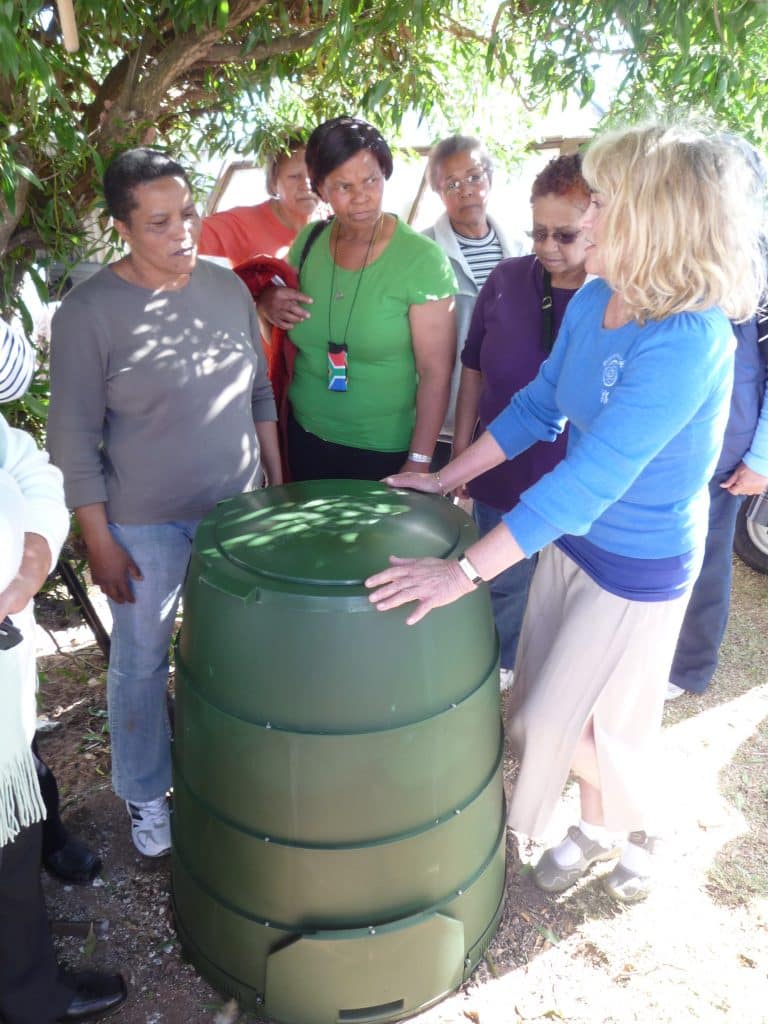
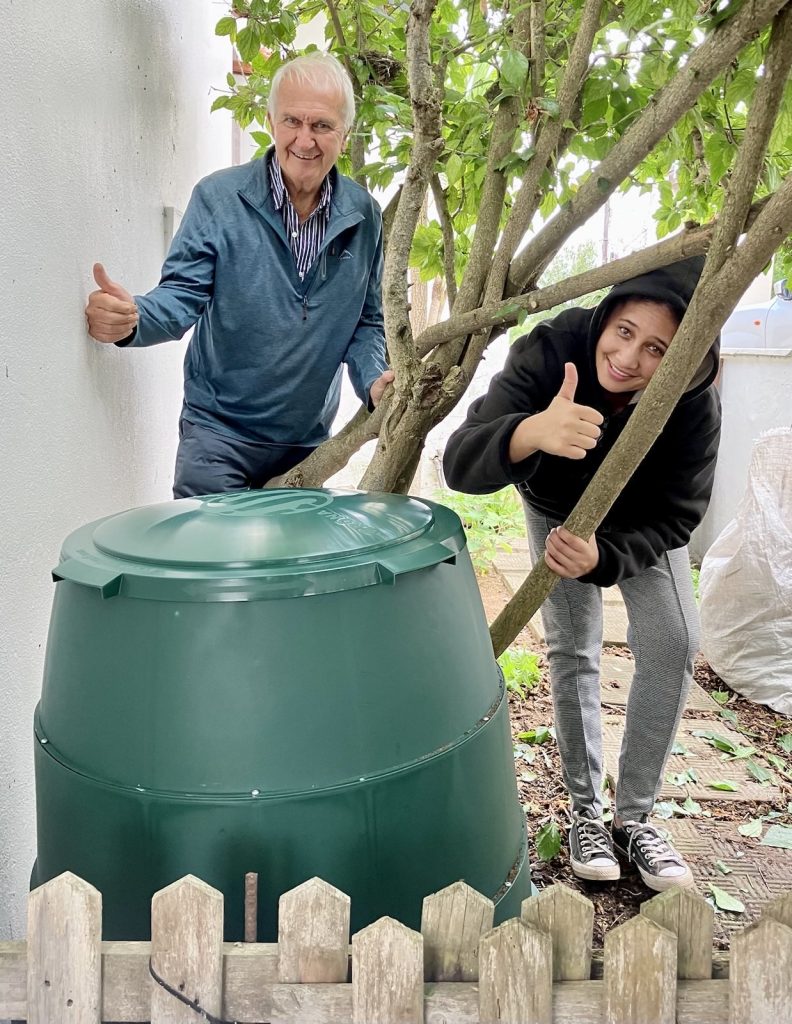
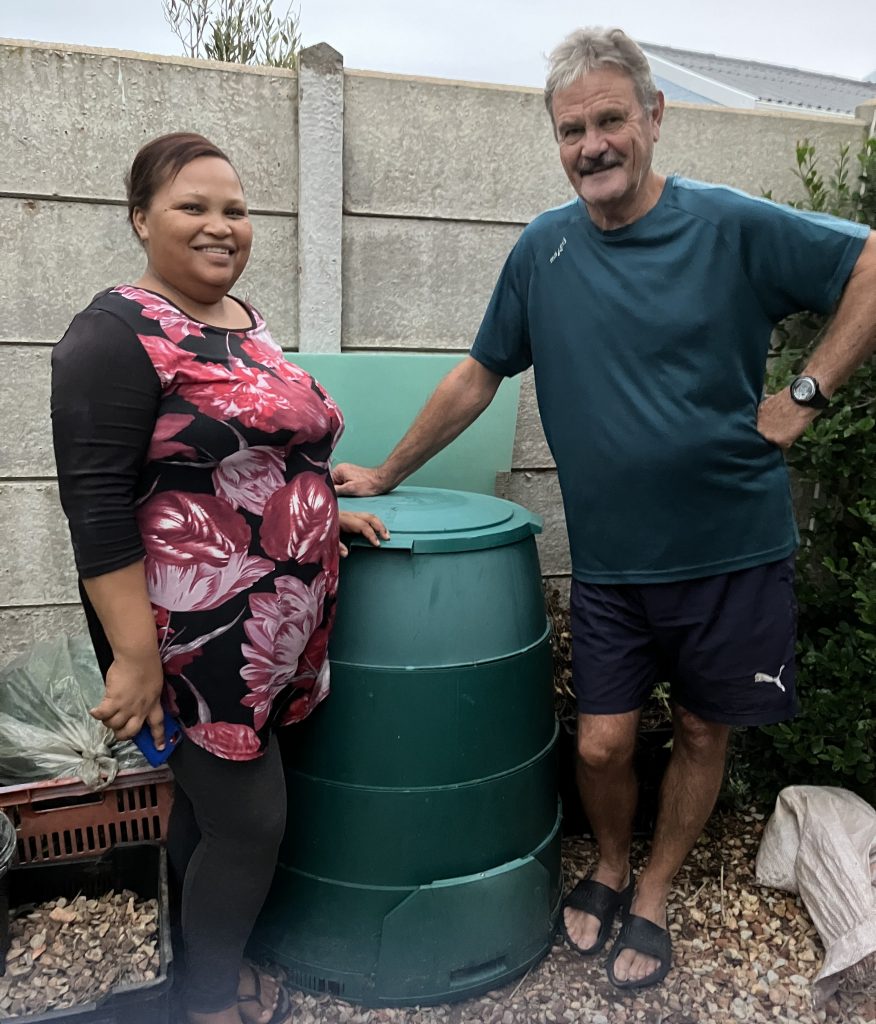
Organic waste – consisting mainly of food and garden waste – is a useful resource that can be recycled and transformed into compost to grow fruit, vegetables, and flowers in residential backyards. Unfortunately, within South Africa much of this ‘perpetually recyclable resource’ is currently being ‘wasted’. Most organic waste is sent to landfills where it breaks down generating greenhouse gases contributing to climate change. Many South African landfill sites are poorly managed leading to other impacts including attracting vermin, and polluting water sources. South Africa also faces the challenge of waste being dumped in communities impacting the environment, public health and community wellness.
Driving a Pathway for Change
The need to address organic waste is set out in the United Nations Sustainable Development Goals – and particular ‘2. Zero Hunger’, ‘3. Ensure healthy lives’ and ’12. Responsible Consumption & Production’ with focus on improving food security, environmental protection, and resource management.
In South Africa national targets were set to divert 25% of garden waste from landfill by 2018 and 50% by 2023. The Western Cape government targets went further with the aim of diverting 50% of organic waste from landfill by 2022, with all organic waste being prohibited from landfill by 2027. The Western Cape government estimated 28% of organic waste was diverted from landfill in 2022 – way below the 50% target. The majority of the organic waste diverted was garden waste with very little being done to tackle food waste.
Each local municipality in the Western Cape is required to submit an ‘Organic Waste Diversion Plan’ setting out how they will achieve these targets, with home composting identified as being a core intervention. Households take ownership of the waste they generate, and the resulting compost can be used by households to grow food, whilst reducing the amount of waste that needs to be collected and managed by the municipality. This leads to economic savings through less fuel and staff costs, and disposal charges – all of which are increasing. Environmental savings include less emissions through reduced vehicle movements and the diversion of organic waste from landfill sites. Composting is an aerobic process (in the presence of air) and doesn’t release greenhouse gases – as opposed to landfill sites which are a key source of methane, a prominent greenhouse gas. Most landfill sites in South Africa do not have landfill gas collection systems.
Our activities addressing organic waste go back to 2009. We saw significant opportunities in home composting to address the waste challenges in communities where we work. We conducted our first waste awareness training with Kamammas (our tourism and associated service enterprises) and community members in Melkhoutfontein, Kayamandi and Stutterheim in 2010 – with follow up training in subsequent years. Core to this work was training in composting. We bought across the first Green Johannas to South Africa and trialled their impact in addressing organic waste within township settings. The Green Johanna was selected to pilot based on its numerous advantages over conventional home composting units – as explored below. The project team also had extensive experience of different composting units – and saw huge potential in the Green Johanna to address the particular waste challenges in South Africa.
Over a decade we have proven that the system works effectively with many of our Kamammas having Green Johannas installed at their homestays. Units were also installed at our former home office with the resulting compost being utilised to grow food for ‘CookUp Kamamma’™ experiences and for distribution back to the community. Compost has also been used to grow food as part of our Back2Front Yard Farming (B2FyF)™ Project.
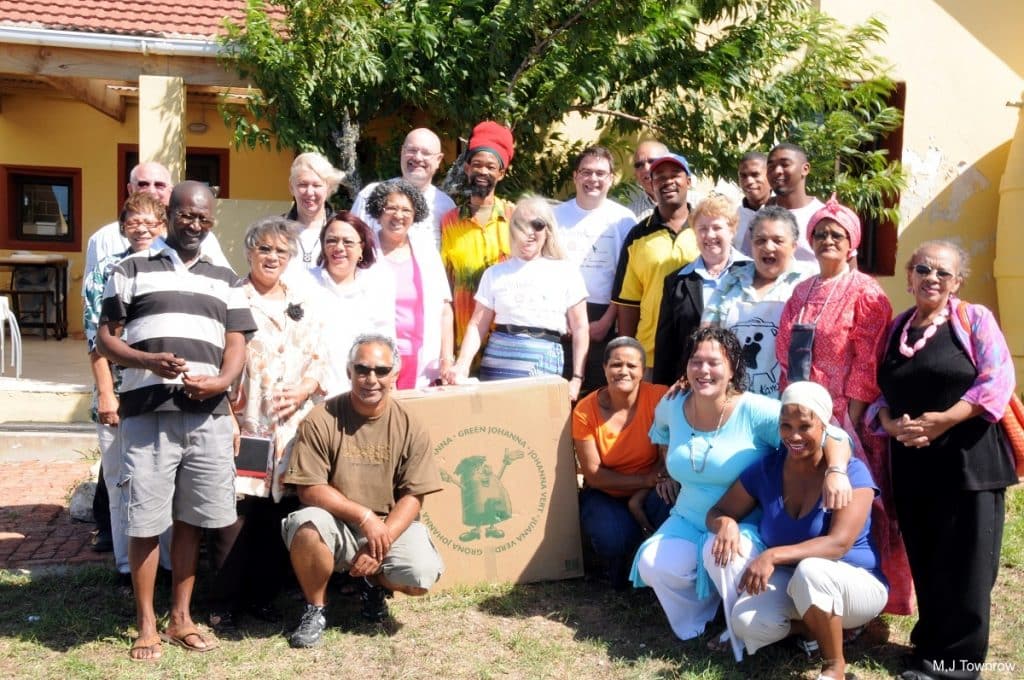
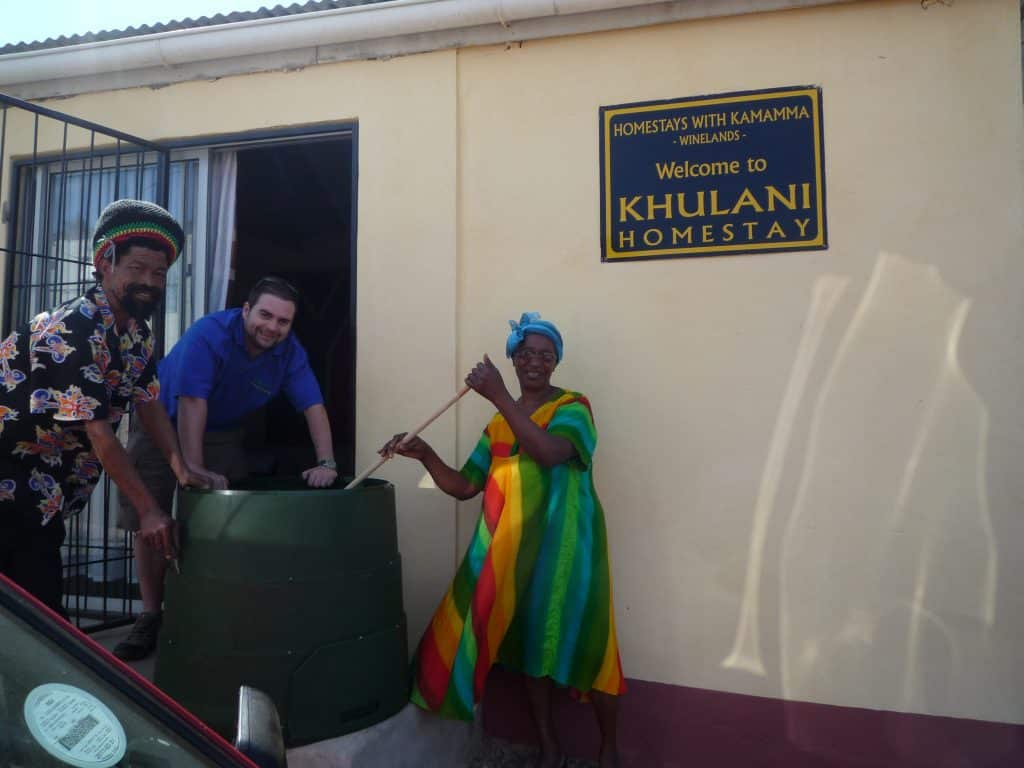
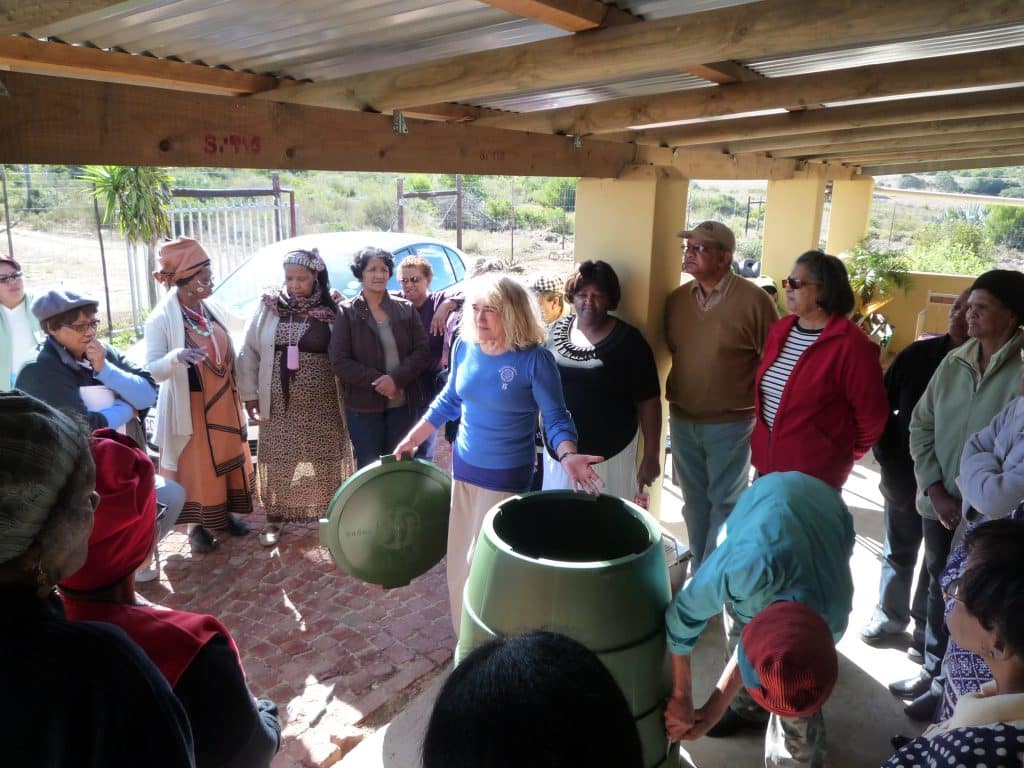
Kamammas celebrating the arrival of Green Johannas. A very fitting name for South Africa 🙂 – Johanna is a popular name in Sweden where the compost units originate from. Video from waste training in 2011
Though we work across South Africa and into Africa, the epicenter of Dreamcatcher activities is Melkhoutfontein, in the Hessequa Local Municipality area. In its most recent ‘Integrated Development Plan the “negative/non-management of waste” is seen as the biggest ‘Internal’ and ‘Relative Risk’ to the municipality.
The South African waste system is heavily reliant on poorly performing and artificially cheap landfill. Legislation and the drive for sustainability will mean the costs for managing waste are destined to increase exponentially. These costs will be passed onto households and businesses who generate the waste.
To mitigate the impact of this, the priority needs to be on waste reduction, reuse, recycling, and composting interventions to divert waste away from landfill.
Past household waste composition studies for the wider Stilbaai area (which includes Melkhoutfontein) show that on average 42% of black bag rubbish, by weight, is food and garden waste. Garden waste levels would be underrepresented in this figure, as most of it is sent directly to landfill.
Home composting combined with the excellent Henque Waste recycling service, and other waste prevention behaviours, can lead to a significant reduction in the levels of waste that needs to be collected and disposed of by the municipality. This will lead to significant economic savings and environmental and social benefits.
As part of our wider work in the community, including sitting on the ‘Stilbaai, Melkhoutfontein & Jongensfontein (SM&J) Community Waste Working Group’, Dreamcatcher in collaboration with the University of Brighton successfully sourced funding to research current waste challenges and solutions for change. This included conducting 2 meetings with community stakeholders and completing 298 questionnaires with households and businesses. A recurring issue was organic waste: only 14% of households surveyed composted – and none in Melkhoutfontein. 91% of households and 73% of businesses fed back that food and garden waste composting would have a ‘significant/some’ impact on improving the local waste system.
At the community stakeholder meetings we discussed different types of home systems for managing organic waste ranging from worktop options through open composting. A comparison of units is shown below.
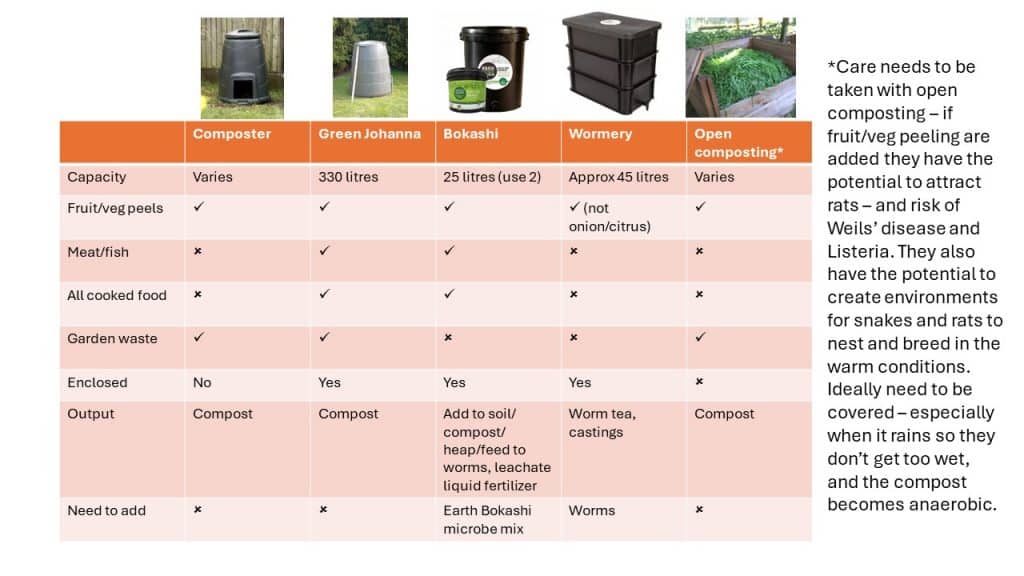
All home-based solutions for organic waste have their merits – with the user selecting the system most conducive to their needs. However the Green Johanna was seen as the preferred option by participants for the following reasons:
Members of the Dreamcatcher team have extensive experience of these units – including working in the UK on government funded research to address poor waste management in social housing. This included the implementation and monitoring of behaviour change programmes, rolling out recycling, and installation of 300 Green Johannas on this project alone. Outputs were shared at the ‘International Solid Waste Association Annual Congress’ in Belgium and published in the peer reviewed journal ‘Sustainability’.
Within the ‘SM&J Community Waste Action Plan’ facilitating the deployment of Green Johannas was seen as a priority.
Due the critical need to reduce levels of organic waste going to landfill, the significant opportunity to harness organic waste as a resource to produce compost, the clear need identified by the communities, and Dreamcatcher’s experience in this field – we decided to do something about it as a matter of urgency. Actions speak louder than words. Dreamcatcher facilitated the import of 115 Green Johanna units to South Africa – after a longer than expected journey due to current world events – the units arrived in Melkhoutfontein in March and are now ready for distribution. We started installing units at the end of March – Yay !
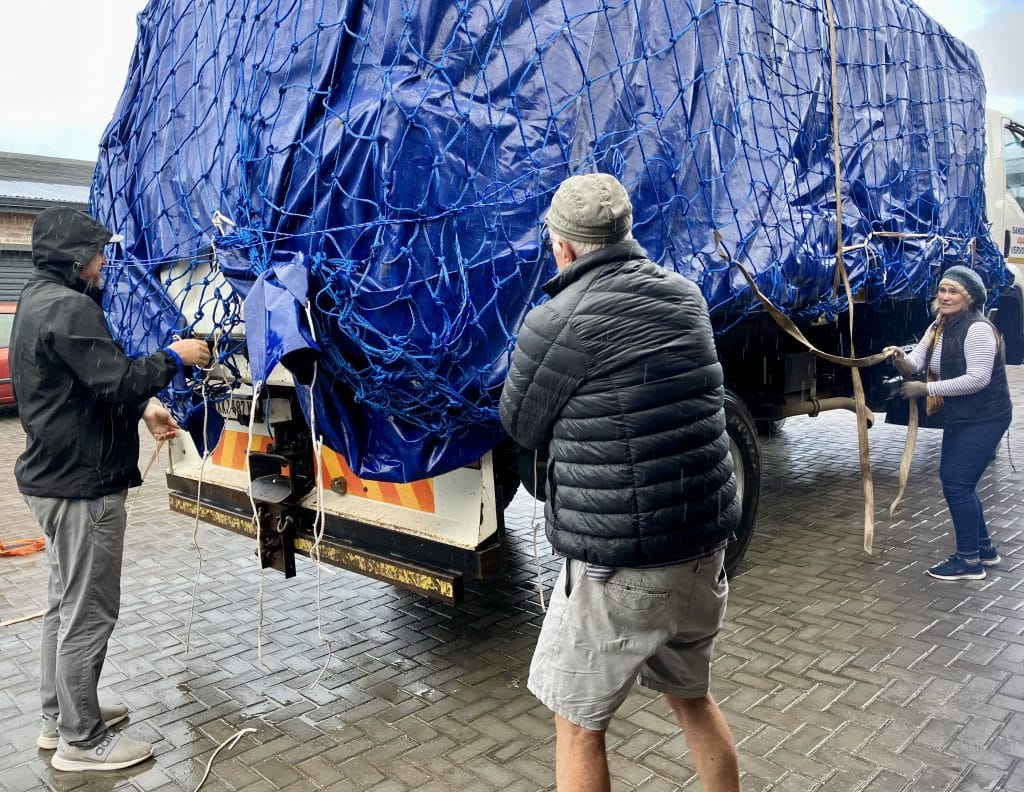
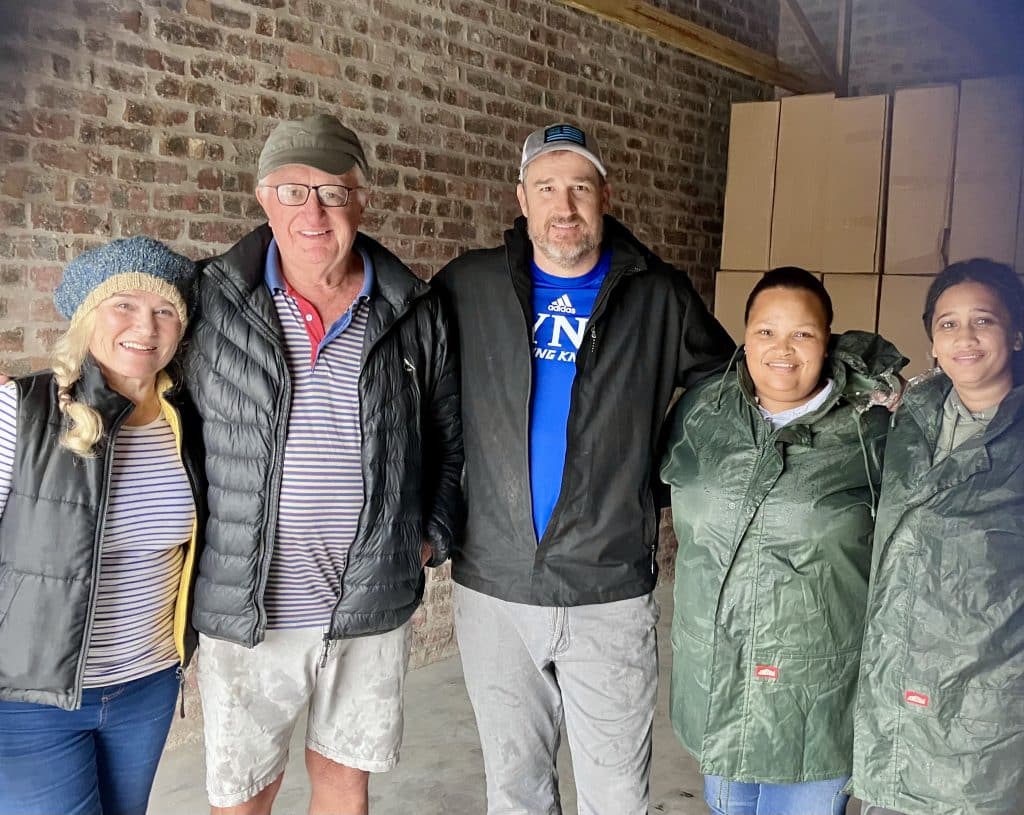
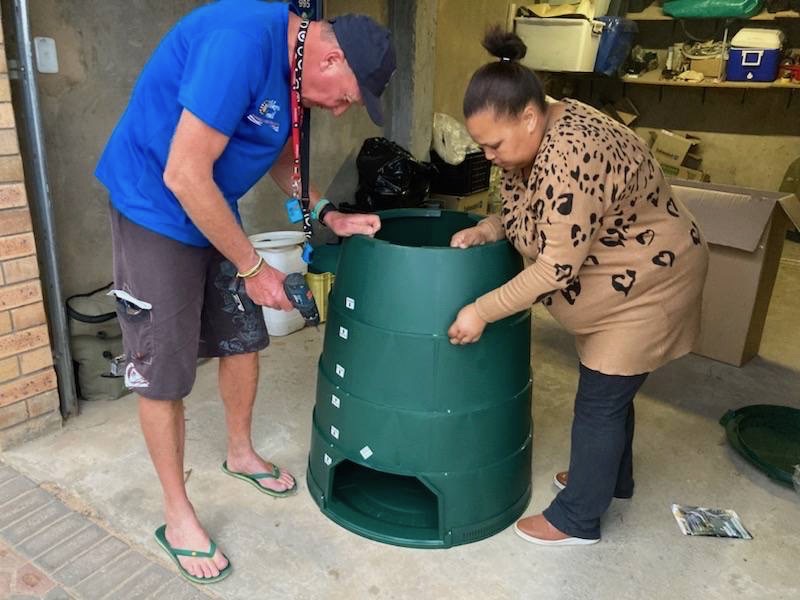
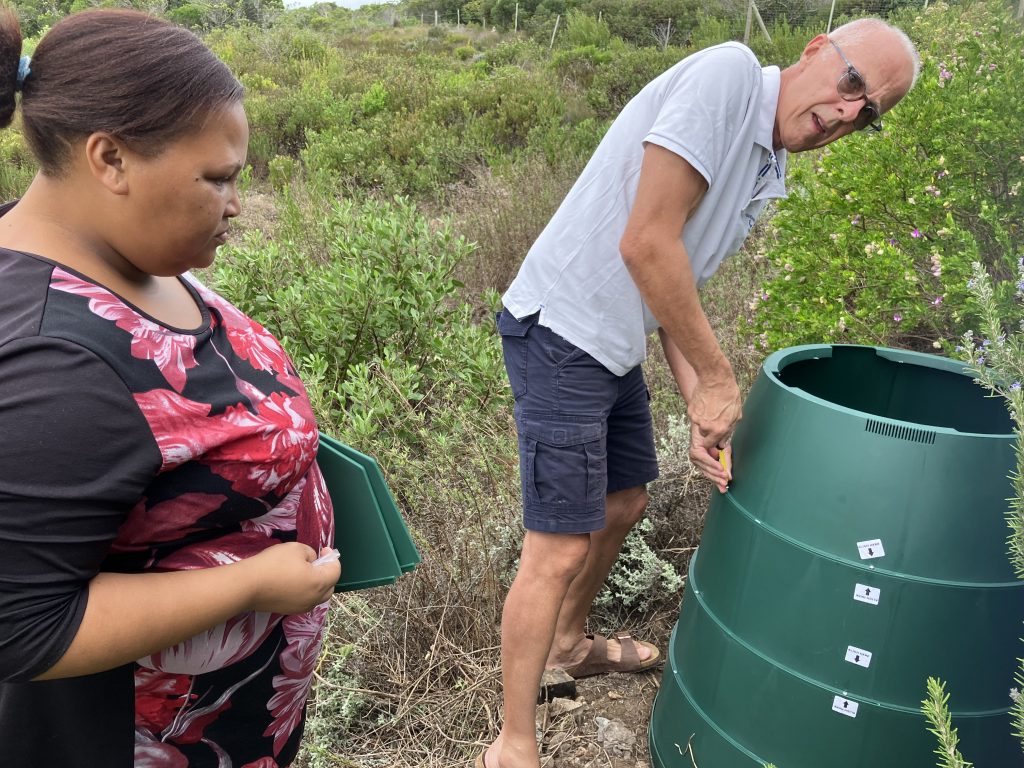
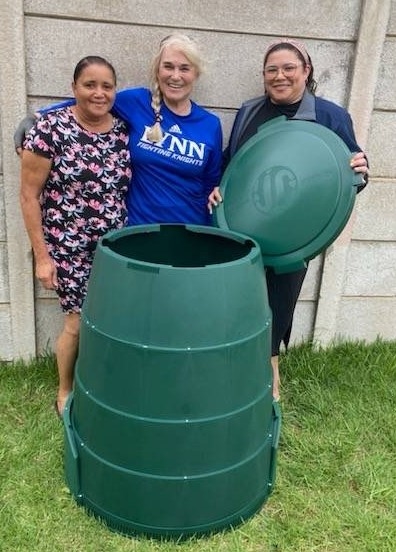
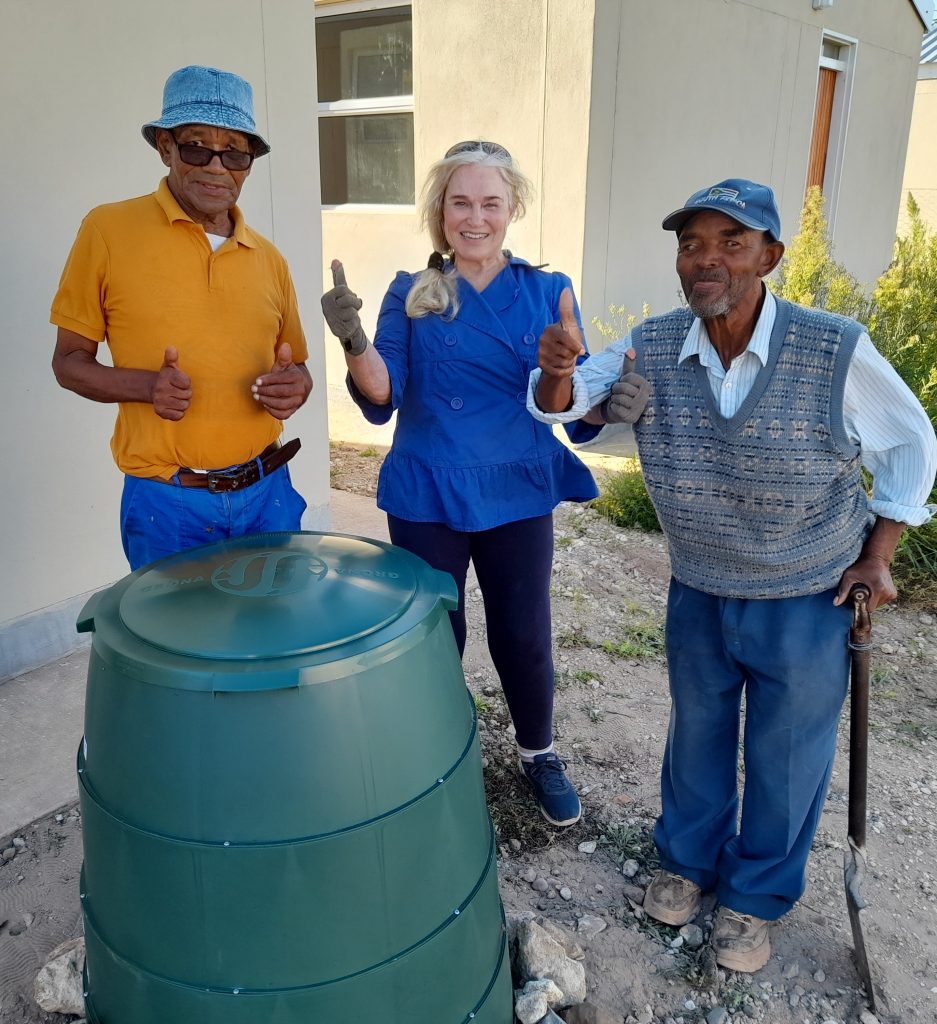
In the UK Green Johannas retail for ZAR 3,463. Thanks to the support of Great Green Systems and donors who recognize our efforts as a non-profit entity to improve quality of life for people and our environment, Dreamcatcher are proud to make these units available for ZAR 2,500 whilst stocks last – 32% less than the UK price. This includes delivery, and ongoing support. The system is modular so needs putting together – the price includes installation by local enterprises who have experience of using these units. Following Dreamcatcher’s inclusive approach, we are committed to make Green Johanna composters available to households living on low income. Leaving no one behind we are working on a specific project to enable low-income households to have access to the units.
If you want to reduce your organic waste going to landfill, produce high quality compost to use in your garden, help the environment and reduce emissions, and save costs on black rubbish bags to boot, contact us here today!
To order your Green Johanna please contact us on:
When your Green Johanna is installed, Dreamcatcher enterprises will explain how the system works and will provide ongoing support.